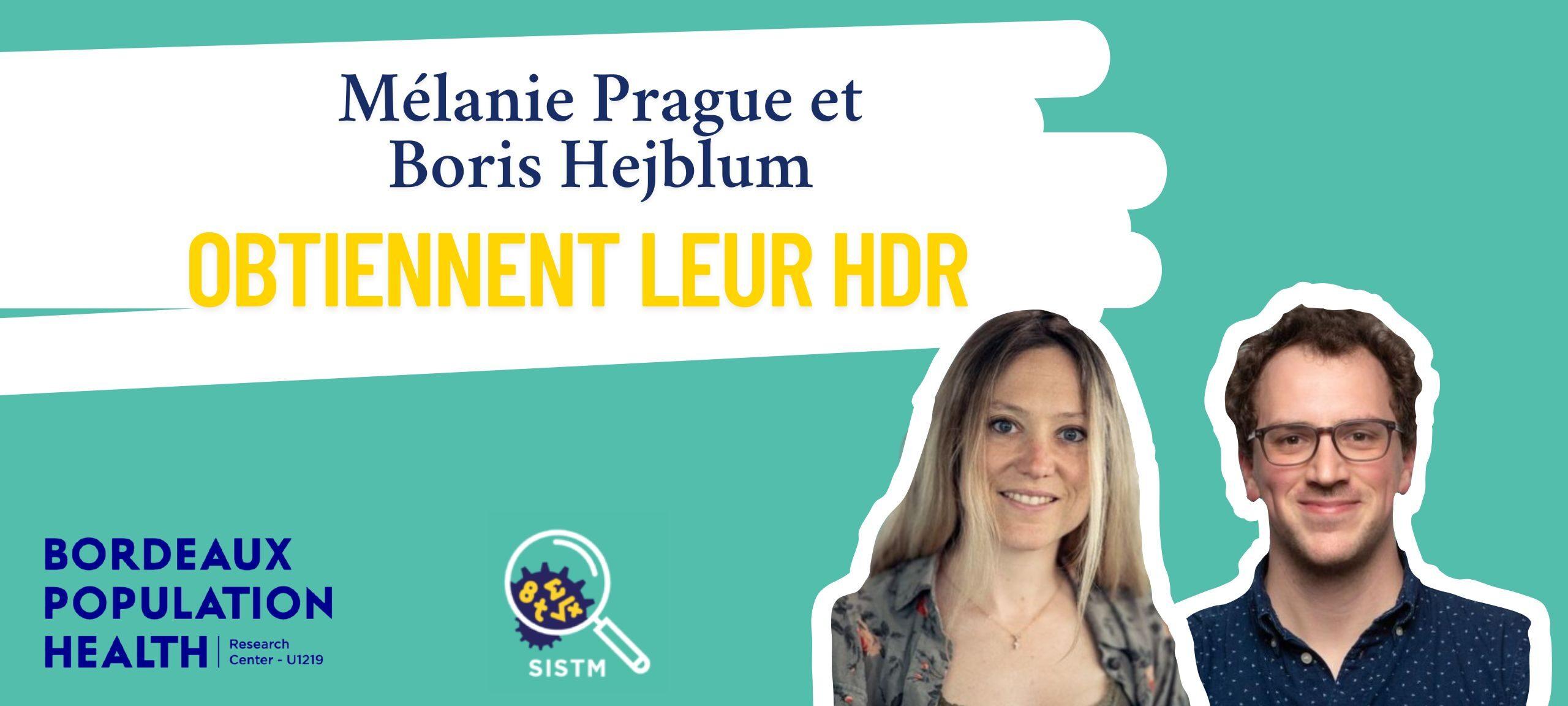Two BPH researchers obtain their HDR: Boris Hejblum and Mélanie Prague
RetourBoris Hejblum and Melanie Prague from the BPH’s SISTM team recently obtained their Habilitation to Supervise Research (HDR).
This is the ultimate presentation for a researcher and validates his or her ability to supervise doctoral students.
This recognition marks a key stage in the careers of our two researchers

Mélanie Prague defended her HDR on “Mechanistic and statistical models for the treatment and control of infectious diseases“.
Her work details the development of mechanistic models, their application to intra-host viral dynamics, and population-level interventions against epidemics, targeting diseases such as HIV, Ebola, and SARS-CoV-2.
This HDR was an opportunity for her to take a look back at her career, but also to structure her research and ideas at the interface between mechanistic and statistical modelling, applied to infectious diseases… by writing part of her work, under the sun of Saint-Martin.
As well as being a rigorous scientific exercise, the presentation provided an opportunity for a stimulating exchange with the jury. In the end, this exercise enabled Mélanie to define the major questions to be explored in the years to come.
Congratulations to our two researchers for this important step in their careers.


